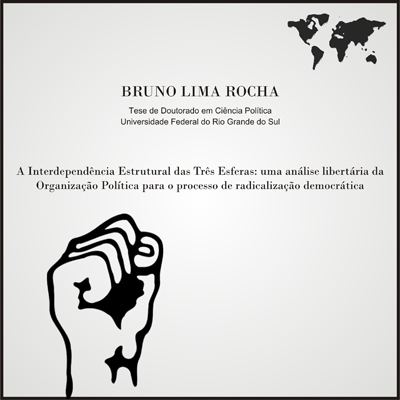

.jpg)
















|
Original Content in English The Brazilian World Cup in the Age of the Commodity of Images
Below, we explain examples of the advancement of the market logic within the World Cup Brazil 2014, and how this mode of operation influences within the game, and as always, more of the same regarding the arbitrariness of FIFA. End of the first stage: a justice that is hardly just Losers go home: so it goes in the great tournaments of football. It is no different with the World Cup. After 48 games in fifteen days, 16 selections go back where they came from. Technical surprises occur, sometimes the outfield has influence. Fights for awards, as it happened with the Ghana selection. Sponsors paying individual awards. It is the worst of the capitalist spectacle running through the most popular and entrenched sport on the planet. The commercial rationale has a tragic end on the field. Big brands exploit the images of athletes, who walk away with decent commissions, but nothing like that of the contracting company. A few years back, colored shoes became the largest media event. Adidas and Nike duel to see who can best take advantage of 30 days. Luck becomes necessary, some teams get sent home too early, taking home their cracks, and the “boys” fall out of focus. When football becomes secondary, its unlikely this team will be champion. Competition? FIFA created rules restricting the excessive advertisement on athletes on the football field. Players cannot display brands different to those that sponsor the team, except for the shoes. Those that believe that is this to preserve the spectacle of the beautiful sport are easily fooled: the supreme football institution simply doesn’t allow competition. In the match between Brazil and Cameroon, the very talented Neymar appears to have learned well from his publicist, Ronaldo Nazário. Number 10 of the Brasilian selection is being investigated by FIFA for having shown his underwear, designed by a Rio-based fashion brand. The custom of showing some underwear (a fever in different places across the american continent), is not simply a post-adolescent trend or male exhibitionism. Although both deny it, it was clear Neymar wanted to show off the article of clothing. The player stayed out on the field for a few minutes after the game, and images from the locker room gave more of reason for an investigation. Neymar appears with shorts bellow the waistline, revealing the underwear. Nothing regarding advertisement in football happens by chance. And Neymar will soon follow down the path of the Ronaldo phenomenon. Suárez and unjust justice In little less than a month, Luis Suárez, the problematic Uruguayan striker, has gone from hell to heaven, only to fall off the cliff. The seasoned and abled striker was the principal reason for Uruguay’s victory against England. Suárez scored both of the goals that brought the English selection to its knees. All of this after the striker underwent surgery on his left knee on the 23rd of May. Within 28 days, Suárez became the hero of Uruguay. The sky seemed so golden one could dream of beating four-time World Cup winner Italy in the last game of the group phase. The tension was enough to make Luis lose emotional control. At 33 minutes and after an air of confusion, the famed number 9 applied his teeth upon the back of Italian defender Chiellini. To Uruguay’s luck, the referee failed to see the attack. With a great deal of effort, victory came at 35 minutes in the second half with a goal by the defender Godín, leaving the ghost of number 50 more alive than ever. The small country of Uruguay said its goodbyes during the eighths after losing to the excellent Colombian selection and its infernal attack. But Suárez lost before then. FIFA attacked beyond what was necessary, exaggerating to set an example of a striker from a country with little power. If the bite had been from a Brazilian or Argentine player, one wonders if the punishment would would have been equal. Arbitrary Punishment Suárez still deserved to be punished. There is no explanation for one professional athlete to attack another, even if the emotional factor influences attitudes within the pitch. Even then, the punishment imposed by FIFA was arbitrary. Picking images and televising them simply to exile an athlete from the World Cup doesn’t appear to be the most democratic of ways to act. Why wasn’t the player given a chance at his own defense? The high courts of FIFA are beyond good and evil. Why didn’t other athletes receive any form of retribution for other violent acts? Acts that could potentially cause sever injury to fellow athletes are suddenly less dangerous? The punishment for the aggression of the great number 9: nine games for the entire selection, four months prohibited from participating in any event so much as linked to football, aside from a fine of 100,000 swiss francs, to go straight into the pockets of Lord FIFA. Perhaps Suárez is not the preferred player to gain the support of the supreme football entity that is FIFA. They prefer the good child. Better yet, they prefer a child that can be sold, one that is good with the ball and has the face of an idiot, perfect to sell whatever filth has a logo and was manufactured with slave labor in some place in Asia. Blatter and his gang could of course take advantage of this purge and continue purging corrupt football leaders, but then there would be an internal crisis. Collective suicide wouldn’t be such a bad idea though. Final Observation This text, in topic form, was written by four hands immediately after Brazil and Chile tied (1-1), the game having taken place in Mineirão, on the 28th of June, 2014. In the moment in which we were revising the article, we received information that social militants of the same state, Minas Gerais, were being intimidated by the state for being suspected of terrorism. It is obviously quite dangerous work to raise a critique from the left during a great sporting event. Dijair Brilhantes is a student of journalism, specialized in the relationship between soccer and politics Bruno Lima Rocha is a scholar and professor, teaches political science (Phd and Msc), international studies (focusing on geopolitics, geo strategy, international political economy and Transatlantic social movements) and is also a journalist professor (Bsc). He writes a weekly column to the most popular Brazilian political blog and is constantly present in alternative media (writing in Portuguese and Spanish, sporadically in English) and Brazilian regional and national media. |

